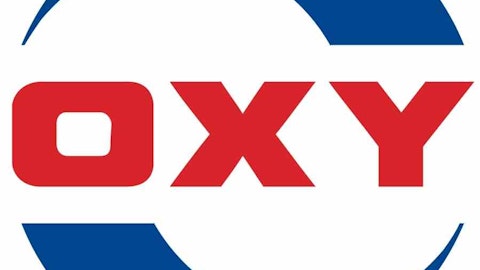It’s often thought that 13F filings aren’t of use to investors, since they are released six to seven weeks after the end of a quarter. However, we think that there are a couple of different uses for this information. First, by pooling 13Fs it is possible to develop investment strategies that beat the market; for example, we have found that the most popular small cap stocks among hedge funds produce an average excess return of 18 percentage points per year- even with this lag (learn more about hedge fund small cap strategies). Another technique is to treat filings as investment advice- don’t blindly follow what top managers are buying, but review their stock picks and do more research on those an investor is less familiar with.
Billionaire John Paulson has struggled since making history with his short of U.S. subprime mortgage assets during the housing bubble. Over the past couple years his fund has lost money, but he remains widely followed in the financial media. We went through Paulson’s 13F for December 2012, comparing it to previous filings (see Paulson’s stock picks over time), and here are some changes that we noticed (Paulson remains heavily invested in gold and gold related companies):

Sprint. The fund initiated a position of over 120 million shares in Sprint Nextel Corporation (NYSE:S), which is in its own special situation at this time as it issues considerable equity in order to fund acquisitions. While it is unprofitable on a trailing basis, and expected to report losses of 85 cents per share this year, the stock price has risen considerably over the last year as investors trumpet Sprint’s pricing relative to its competitors and believe that its current activities will unlock shareholder value. We’d also note that Paulson added shares of MetroPCS Communications Inc (NYSE:PCS) to his portfolio during the fourth quarter; MetroPCS is another merger target as well.
See one stock Paulson was selling last quarter:
Selling Delphi. Paulson reduced its stake in Delphi Automotive PLC (NYSE:DLPH) from about 25 million shares at the end of September to about 14 million shares in its most recent 13F. Delphi, a $13 billion market cap auto parts company which manufactures electrical, electronic, and powertrain components, had been the fund’s largest non-gold related position. The stock trades at 12 times trailing earnings as the market is generally wary of the auto industry and, therefore, of suppliers. Revenue was down slightly in the fourth quarter of 2012 versus a year earlier, and lower margins caused earnings to fall by over 50%. Billionaire Paul Singer’s Elliott Management has also been a major investor in Delphi (find Singer’s favorite stocks).
Merger arbitrage can be profitable, particularly if leverage is used, though risky as the stock will plunge if the deal falls apart; interested investors can do the math and see if buying Plains or Nexen is worth that risk for them. We can see the competitive case for Sprint winning market share, but at this point we think the stock is too speculative to recommend buying on value terms. While Delphi looks cheap, the same is true for peers and for automakers and some of those companies might be better buys.
Disclosure: I own no shares of any stocks mentioned in this article.





